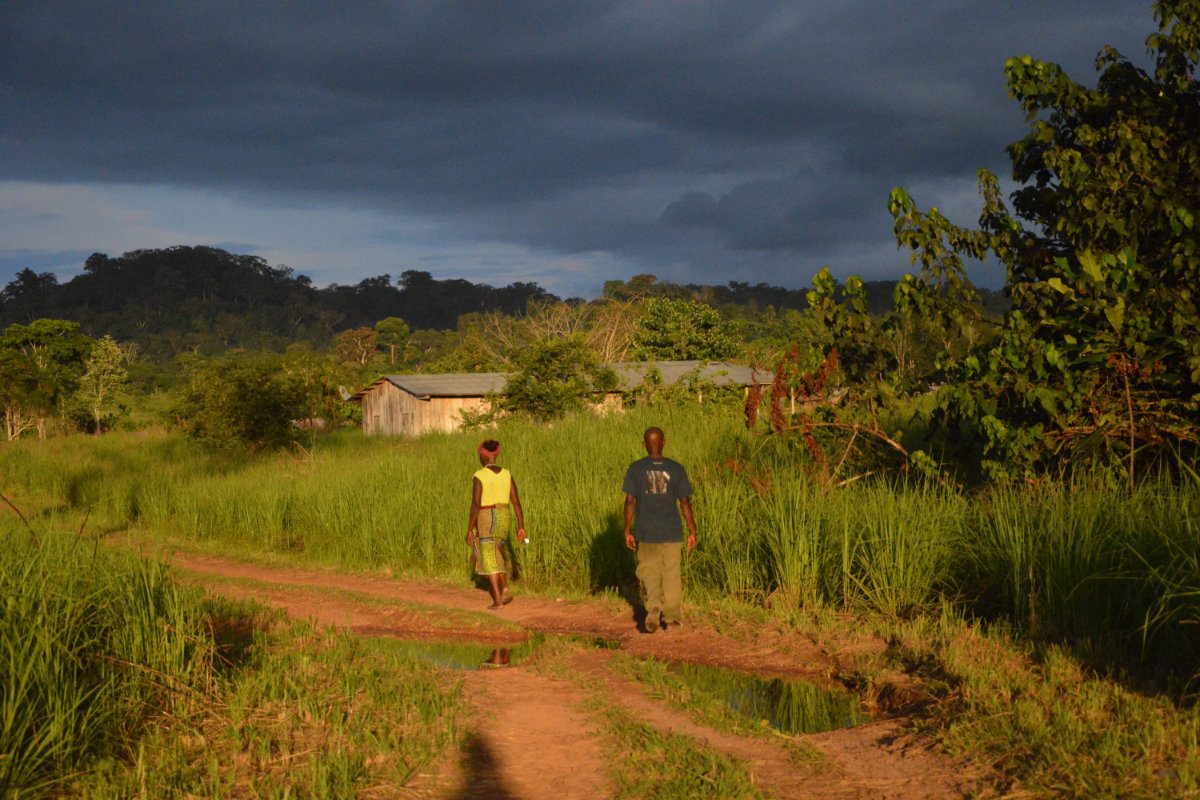Article published in Current Biology
 Local ecological knowledge contributes to the knowledge of tree-frugivore interaction networks in Afrotropical forests
Local ecological knowledge contributes to the knowledge of tree-frugivore interaction networks in Afrotropical forests
Interaction networks between trees producing fleshy fruits and frugivorous species contributing to seed dispersal are still poorly known, particularly in Afrotropical forests. In-depth knowledge of these plant-animal interaction networks would help us assess the functional role played by different vertebrate species, via dispersal, in forest structure and dynamics. Vertebrate and plant communities are threatened by defaunation, causing species extinction and functional disappearance, jeopardizing the functioning plant-animal networks and then the overall forest communities. Our lack of knowledge of interaction network structure is particularly linked to sampling biases in favor of emblematic vertebrate species (apes, elephants, etc.), which currently slow our understanding of the defaunation impact on these forests. Local ecological knowledge appears as a great help to expand our knowledge on frugivory interactions.
Our study aimed to identify potential synergies between local ecological knowledge and academic knowledge. An international team, led by PhD student and a researcher from UMR Biogeosciences, compiled frugivory interactions linking 286 tree species and 100 frugivores from literature and interviews with the local community of Doussala in Gabon. The results, published online March 6 in the Current Biology, showed that local ecological knowledge regarding frugivory interactions was substantial and original, with 39% of these interactions unknown to science. These results showed that the combination of academic and local ecological knowledge changes the functional relationship linking frugivore body mass to seed size, as well as the network structure. This article highlights the benefits of linking different knowledge systems between academics and local communities for a better understanding of the functioning and response to the disturbance of Afrotropical forests.
Reference
Clémentine Durand-Bessart, Etienne François Akomo-Okoue, Ghislain Wilfried Ebang Ella, Vincent Porcher, Paul Yannick Bitome Essono, François Bretagnolle, Colin Fontaine. 2024. Local people enhance our understanding of Afrotropical frugivory networks. Current Biology 34, 1–8
- extrait:
- lien_externe:
- kc_data:
- a:8:{i:0;s:0:"";s:4:"mode";s:0:"";s:3:"css";s:0:"";s:9:"max_width";s:0:"";s:7:"classes";s:0:"";s:9:"thumbnail";s:0:"";s:9:"collapsed";s:0:"";s:9:"optimized";s:0:"";}
- kc_raw_content:
 Local ecological knowledge contributes to the knowledge of tree-frugivore interaction networks in Afrotropical forests
Local ecological knowledge contributes to the knowledge of tree-frugivore interaction networks in Afrotropical forestsInteraction networks between trees producing fleshy fruits and frugivorous species contributing to seed dispersal are still poorly known, particularly in Afrotropical forests. In-depth knowledge of these plant-animal interaction networks would help us assess the functional role played by different vertebrate species, via dispersal, in forest structure and dynamics. Vertebrate and plant communities are threatened by defaunation, causing species extinction and functional disappearance, jeopardizing the functioning plant-animal networks and then the overall forest communities. Our lack of knowledge of interaction network structure is particularly linked to sampling biases in favor of emblematic vertebrate species (apes, elephants, etc.), which currently slow our understanding of the defaunation impact on these forests. Local ecological knowledge appears as a great help to expand our knowledge on frugivory interactions.
Our study aimed to identify potential synergies between local ecological knowledge and academic knowledge. An international team, led by PhD student and a researcher from UMR Biogeosciences, compiled frugivory interactions linking 286 tree species and 100 frugivores from literature and interviews with the local community of Doussala in Gabon. The results, published online March 6 in the Current Biology, showed that local ecological knowledge regarding frugivory interactions was substantial and original, with 39% of these interactions unknown to science. These results showed that the combination of academic and local ecological knowledge changes the functional relationship linking frugivore body mass to seed size, as well as the network structure. This article highlights the benefits of linking different knowledge systems between academics and local communities for a better understanding of the functioning and response to the disturbance of Afrotropical forests.
Reference
Clémentine Durand-Bessart, Etienne François Akomo-Okoue, Ghislain Wilfried Ebang Ella, Vincent Porcher, Paul Yannick Bitome Essono, François Bretagnolle, Colin Fontaine. 2024. Local people enhance our understanding of Afrotropical frugivory networks. Current Biology 34, 1–8
